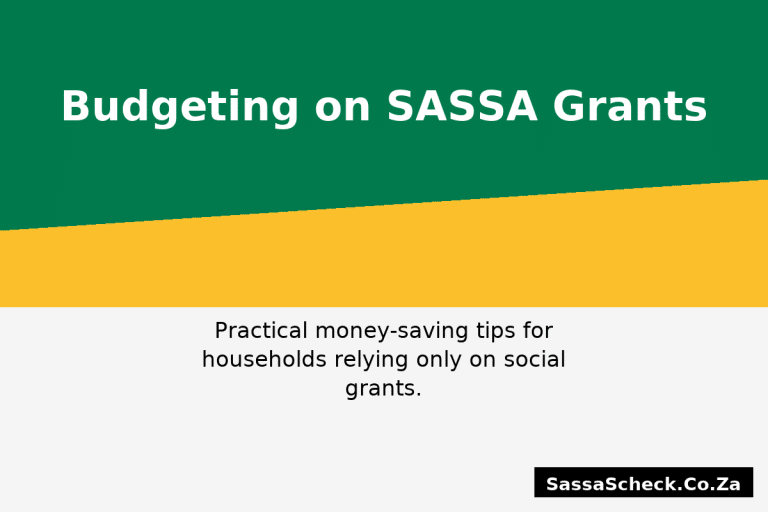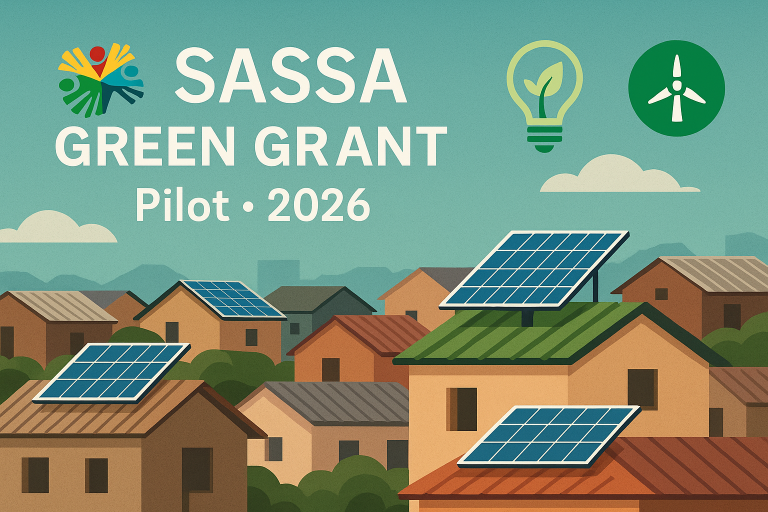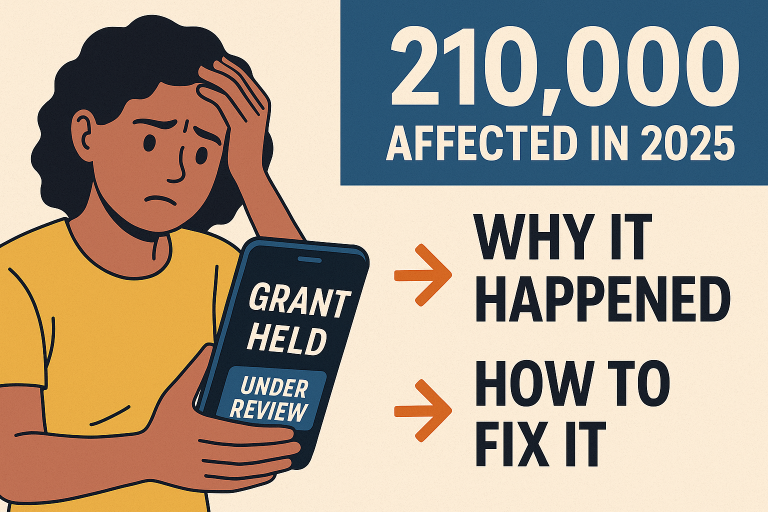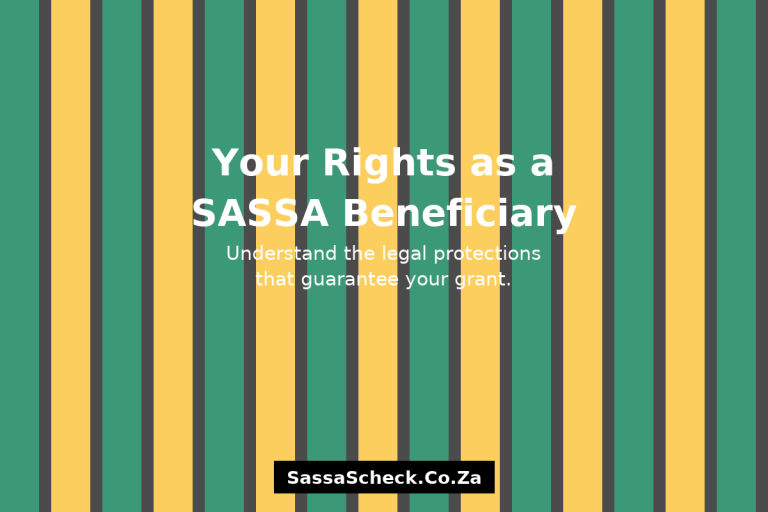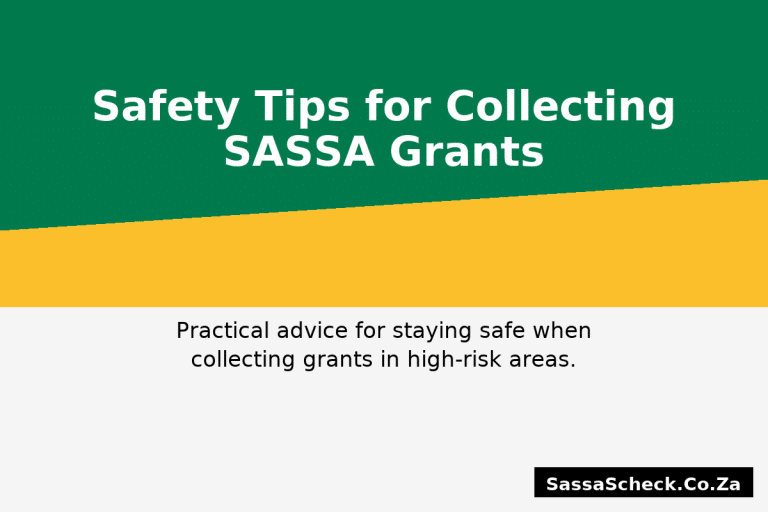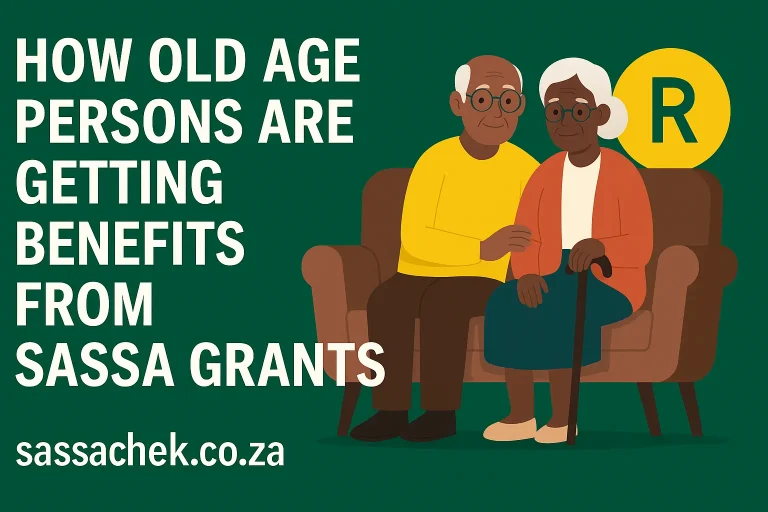The Hidden Costs of Collecting SASSA Grants in Rural Areas
For many households in rural South Africa, SASSA grants are the main or only income. Yet, collecting the grant can cost money, time, and even safety. These “hidden costs” transport fares, service fees, lost work time, and the risk of crime quietly reduce the value of the grant long before it reaches the kitchen table. This guide explains what those costs are, why they happen, and how beneficiaries can cut them down without breaking any rules.
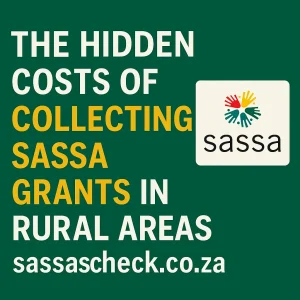
Transport: Paying to Access Your Own Money
In small towns and villages, the closest pay point, Postbank branch, retailer or ATM can be far. A return taxi ride for two people (beneficiary + helper) quickly eats into the grant. Where roads are poor and services are scarce, some beneficiaries make multiple trips if the pay point has no cash or systems are down.
What to do:
- Switch to bank deposits instead of cash collection. It lets you withdraw at an ATM or swipe at nearby shops when it suits you.
- If you must travel, coordinate with neighbours to share taxi costs, and phone ahead (where possible) to confirm that the pay point is operating.
Service & Cash-Out Fees
When withdrawing at retailers or third-party outlets, small cash-out charges or “service fees” may apply. Even a few rand adds up across a year, especially if you make several small withdrawals instead of one larger one.
What to do:
- Ask the cashier upfront about cash-out fees.
- Where safe, limit transactions to one withdrawal per pay cycle.
- Consider card swipes for groceries to reduce repeated cash withdrawals (only if it’s safe to carry less cash).
Lost Time and Opportunity Cost
Payday queues can stretch for hours. For caregivers, farmworkers, or informal traders, that time means lost income or childcare costs. When a system outage forces a second trip, the loss doubles.
What to do:
- Know the staggered payment order (older persons and disability grants first, children’s/other grants later). Going one or two days after your category’s start date often means shorter queues.
- If you have a bank account, grant money generally reflects the same day it’s paid you can avoid queues entirely.
Note: General grant guidance and categories are set out on SASSA’s official services portal.
Safety Costs
Some beneficiaries travel long distances with cash, making them targets for crime. In certain areas, beneficiaries hire companions or pay community members to escort them — another hidden cost.
What to do:
- Avoid carrying full cash amounts. Use your card for essentials directly at retailers where possible.
- Go with trusted family or neighbours in groups; avoid isolated footpaths after withdrawals.
- Withdraw during busier daylight hours and vary routine where possible.
Documentation and Admin Trips
A change of banking details, a reapplication, or an appeal can require repeat office visits each one a taxi fare and a day lost. Errors in names, ID numbers or mismatched bank accounts can trigger more travel.
What to do:
- For SRD or bank changes, use the official SASSA/SRD channels and ensure your bank account matches your ID before you submit. (See SASSA’s services portal for official grant information and routes to online services.)
- Keep copies (paper or photos) of IDs, birth certificates and proof of address. Bring everything at once to reduce extra trips.
Intermediaries and Helpers
In some villages, self-styled “agents” offer to “speed up” applications or collections for a fee, or demand a cut after they “help” someone fill in forms. This can spiral into ongoing deductions or debt.
What to do:
- Never hand over your card, PIN, or ID to intermediaries.
- SASSA services do not require private fees. If someone demands money, walk away and report it at the next safe opportunity.
- When you need help filling forms, use official SASSA staff at offices or a trusted community organisation don’t sign anything you don’t understand.
Banking Barriers
Some beneficiaries avoid banks because of monthly charges or fear the account will swallow funds through debit orders. Others don’t have proof of address or worry about literacy in branches.
What to do:
- Open a basic, low-fee account. Ask specifically about cash-out fees and swipe charges.
- If you lack proof of address, request a councillor’s or traditional authority letter for both bank and SASSA admin.
- Make your personal account the grant destination; SASSA will not pay into accounts that don’t match your ID.
Planning the Month
When costs of access are high, the budget is tighter. Cushion the shock by planning purchases on a monthly rhythm bulk-buy staples after the grant arrives and keep a small emergency cushion if possible. Where safe, use store cards only if you fully understand the costs and repayment terms.
What to do:
- Price-check at two different shops; rural mark-ups can be steep.
- Keep a small “transport jar” to ring-fence taxi money for the next collection.
- Consider stokvels with people you trust but never tie your grant card to group debts.
Practical Checklist (Cut-and-Keep)
- ✅ Switch to bank deposit to avoid cash-collection queues.
- ✅ Confirm name/ID matches on your bank account before updating SASSA.
- ✅ Withdraw once per month (if safe) to reduce repeated fees.
- ✅ Carry less cash; prefer card swipes for big shops.
- ✅ Travel in groups and vary routine; avoid isolated routes.
- ✅ Keep document copies (ID, proof of address, bank letter).
- ✅ Don’t pay private “agents”; SASSA services don’t require fees.
- ✅ Follow official SASSA channels for updates and changes.
FAQs
Is it cheaper to collect in cash or use a bank account?
Usually a bank account is cheaper and safer over time. You avoid repeated taxi trips and can make one withdrawal or pay by card. Always ask your bank about low-fee options and cash-out costs.
What if I don’t have formal proof of address?
Ask your ward councillor or traditional authority for a letter confirming your residence. Banks and SASSA commonly accept this when stamped and dated.
Can SASSA force me to collect at a Post Office or pay point?
No. Beneficiaries can use bank deposits. Make sure your account is in your own name and the details match your ID when you submit changes via official channels.
How do I know I’m using an official SASSA channel online?
Use the SASSA services portal and Department of Social Development websites linked from .gov.za domains. Be cautious of look-alike websites.

